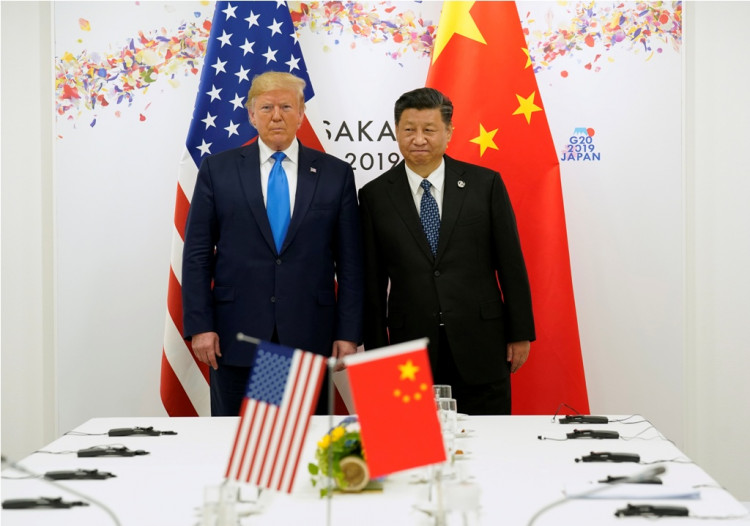Chinese President Xi Jinping issued a sharp rebuke of global tariff regimes on Wednesday, warning that trade wars undermine multilateral institutions and the broader world economic order. Xi's remarks, delivered in Beijing during a state visit by Azerbaijan President Ilham Aliyev, come as China deepens international outreach and signals openness to renewed trade talks with the United States.
"Tariff and trade wars undermine the legitimate rights and interests of all countries, hurt the multilateral trading system and impact the world economic order," Xi said, according to state-run Xinhua News Agency.
The statement was part of a broader meeting in which China and Azerbaijan announced a new comprehensive strategic partnership and signed 20 cooperation agreements under the Belt and Road Initiative. Xi said China would work with Azerbaijan to "uphold the international system with the United Nations at its core... and safeguard international fairness and justice."
His comments arrive as tensions between Washington and Beijing simmer over reciprocal tariffs that have stalled trade flows between the world's two largest economies. The Trump administration has imposed tariffs as high as 145% on Chinese goods, with China retaliating at a rate of 125% on U.S. exports.
Despite the heated rhetoric of recent weeks, officials on both sides appeared to temper their tone. In Washington, U.S. Treasury Secretary Scott Bessent described the trade war as "unsustainable" and said, "If China is serious on less dependence on export-led manufacturing growth... let's rebalance together." Bessent added that the U.S. expects "a de-escalation" in the near future.
Global markets reacted positively. Japan's Nikkei rose nearly 2%, Hong Kong's Hang Seng gained 2.4%, and the South Korean Kospi advanced 1.6%. European indices followed suit, with Germany's DAX up 2.6% and France's CAC 40 rising 2.1%. In the U.S., the Dow surged more than 800 points Wednesday morning, and the Nasdaq climbed over 3%.
President Trump also appeared to retreat from prior confrontational rhetoric, telling reporters Tuesday that the U.S. would "be very nice" to China in trade discussions. He added that while tariffs "won't be zero," they would "come down substantially."
Xi's criticism of tariffs was paired with a renewed call for regional collaboration, particularly through infrastructure and energy development projects under the Belt and Road framework. Azerbaijan, an early supporter of the BRI, signed agreements with China covering green development, intellectual property, digital economy, and aerospace. The two countries also agreed to a mutual visa exemption and pledged to enhance agricultural trade and renewable energy cooperation.
Meanwhile, China's Ministry of Foreign Affairs said Wednesday the door for talks is "wide open" but warned the U.S. to stop issuing threats. "We do not wish to fight, nor are we afraid of fighting," said spokesperson Guo Jiakun. "Continuing to exert extreme pressure is not the correct way to have dealings with China."
The diplomatic overtures come amid growing concern over slowing global growth. On Tuesday, the International Monetary Fund slashed its 2025 forecast from 3.3% to 2.8%, citing prolonged trade disputes as a major contributing factor.






